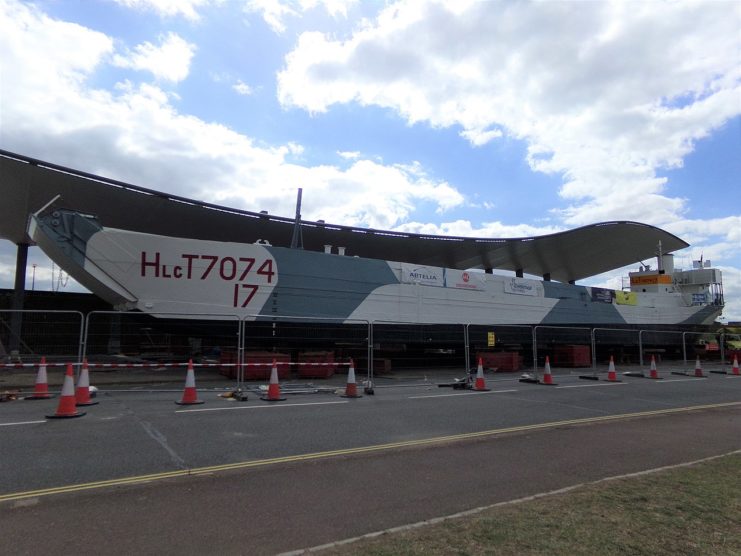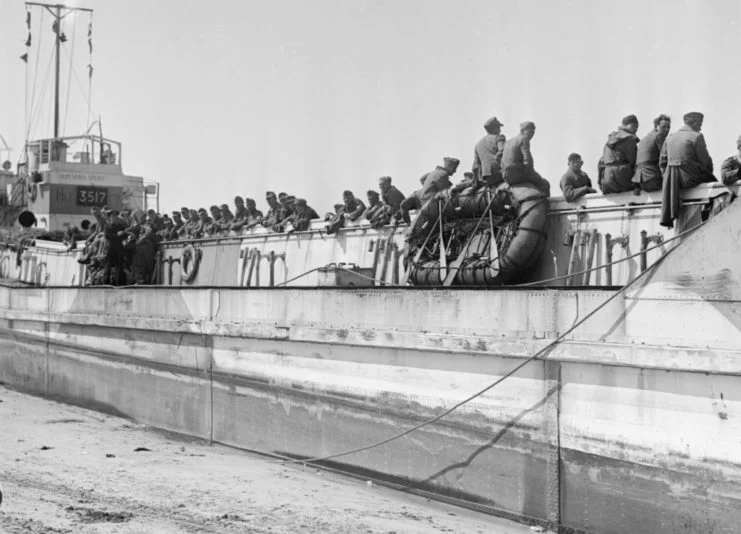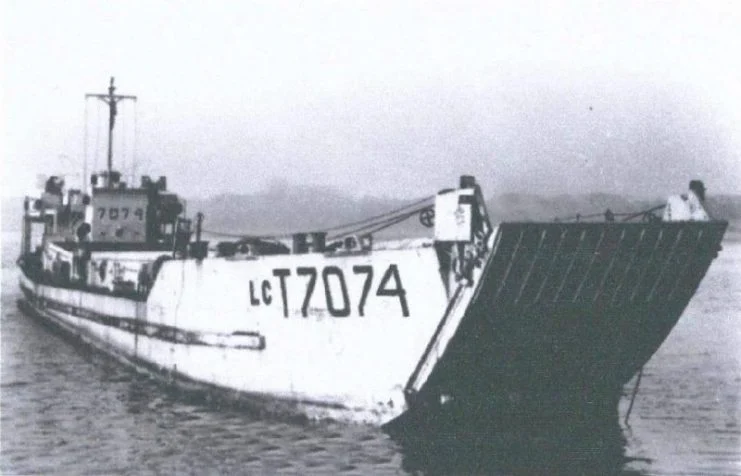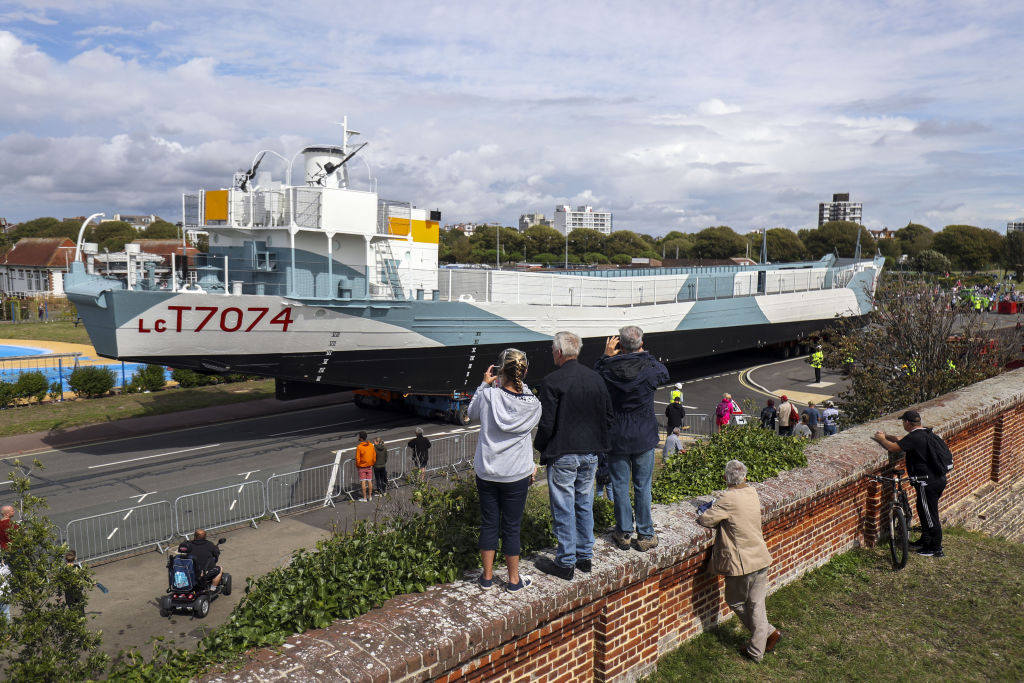Landfall, a 300 tonne D-Day Landing Craft, also known as LCT 7074 has been delivered to Southsea in the UK prior to delivery to a museum. Used to deploy tanks on the beaches of Normandy during Operation Overlord, she narrowly escaped destruction when shelling from German positions sank the next boat.

She was one of a fleet of 800 ships that delivered tanks, men and supplies to the beaches of Normandy in the summer of 1944. Escaping the barrage of enemy shells, she then spent the following months going back and forth across the channel, maintaining Allied supply lines and carrying troops to the battlefields of Northern France.
The ship was built remarkably quickly in order to be ready for the Allied Invasion but stayed together through the trials of war work. Eventually she was given a new lease of life in 1960s Liverpool as a floating nightclub.
The ship had new portholes fitted and was re-jigged to be able to take deliveries of beer barrels. She survived as a party-boat up until the 1980s and was featured in the Cold War movie ‘Letter to Brezhnev’. Eventually LCT 7074 was moved to Birkenhead by a restoration trust for repair before the charity folded.

In 2010 the ship took on water and sank to the bottom of Birkenhead Docks and it was four years before she was able to be salvaged. In 2014 a salvage team took two days to raise the ship, covered in mud and seaweed, with its timbers rotted and steel parts rusting away.
She was restored under the auspices of the National Museum of the Royal Navy in partnership with Portsmouth City Council. Work included an original pattern paint job used to confuse with camouflage, and the installation of replica weaponry including rocket launchers.
Electrical rewiring was required and the living and working spaces were completely refitted. The work was topped off by the inclusion of a brand-new funnel.

In all the cost of the renovation came to almost £5M GBP ($6.6M USD), with an additional £75,000 put on the final bill by the problems incurred by the Covid-19 pandemic.
Originally scheduled for a move in June to coincide with the 76th anniversary of the D-Day landings, moving LCT 7074 from Portsmouth Naval Base to Southsea was finally able to go ahead at the end of August.
Storms threatened to hold up the move, scheduled to take eight hours but a high tide and better weather came to the aid of the restoration team. Nick Hewitt, director of collections and research for the National Museum of the Royal Navy, confirmed by social media that the ship had, at last, arrived in Southsea D-Day Museum.
‘The transformation has been amazing,’ said Hewitt, who has been part of the project to rescue LCT 7074 since she was raised from the bottom of the docks six years ago, ‘The team that has restored it has done the most phenomenal job. Every mark of paint on her was how it was in 1944.’
The fact that the ship was used as a nightclub for so long is one of the reasons that the ship survived for so long as many other D-Day landing craft were simply broken up for scrap. They were not designed for long service but as a wartime necessity to help turn the tide of war.
Another Article From Us: Live Like a Bond Villain, 3 Remote Napoleonic-Era Forts For Sale
It is expected that LCT 7074 will be open to the public from October 2020 as part of the museum’s D-Day Story, a centrepiece and focal point that will dominate Southsea Common in front of the museum.
